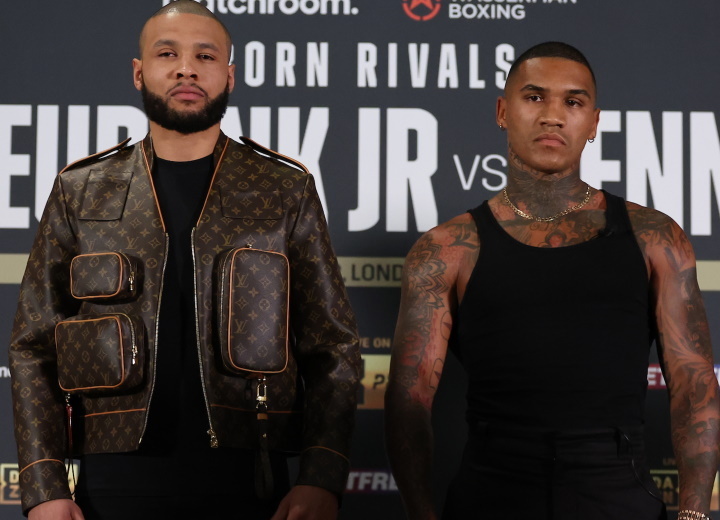Chris Eubank Jr’s team were not informed about Conor Benn’s first positive drugs test when he signed for their fight.
Benn has revealed that he tested positive for the banned substance clomifene, a female fertility drug that boosts testosterone, weeks before a positive test for the same substance that scuppered his fight with Eubank.
A member of Eubank’s team described news of the July positive test as “baffling”.
It was a sample taken from Benn on September 1 that led to the fight being called off. It was reported to Benn and Eubank’s teams, as well as the British Boxing Board of Control, on September 23.
After a consultation between the teams, Eubank said that he still wanted to go ahead with the fight, after being told by medical experts that the small amount of the drug could not have been performance enhancing.
Meanwhile, the BBBoC passed the matter on to their lawyers. It was not until October 4 – four days before the scheduled fight – that they decided to prohibit the fight as “not in the best interests of boxing”.
But Benn has since admitted that he also came up positive, in a test taken on July 25, for the same substance. The press conference to announce the fight took place on August 12, 18 days later, which is around the time the result of the positive test will have been reported to Benn.
Both positive tests were handled by the Voluntary Anti-Doping Agency, but Eubank’s team were only informed of the September test. The positive test from July is understood to have been undertaken as part of the WBC’s Clean Boxing Program. VADA handles the Clean Boxing Program’s testing protocol for the sanctioning body.
Because Benn’s July test was not within Eubank’s contractual period with VADA for the October fight, the drug testing agency did not inform Eubank’s team. It is not clear when Eubank and his handlers were made aware of the first positive test, but it is understood that they still have not been given the full details.
Last Friday, Benn decided not to renew his British license ahead of a misconduct hearing in front of the BBBoC. The misconduct charge is unrelated to the positive tests.
Benn believes the WBC should be the organization to hold a hearing into the positive tests, not the BBBoC, who would delegate the matter to UK Anti-Doping.
In interviews this week, Benn admits that when he was informed about the first failed test, he wrote it off as “a faulty test”.
Ron Lewis is a senior writer for BoxingScene. He was Boxing Correspondent for The Times, where he worked from 2001-2019 – covering four Olympic Games and numerous world title fights across the globe. He has written about boxing for a wide variety of publications worldwide since the 1980s.
